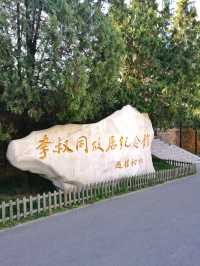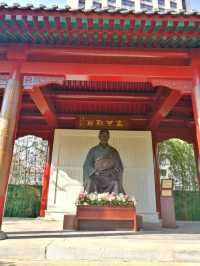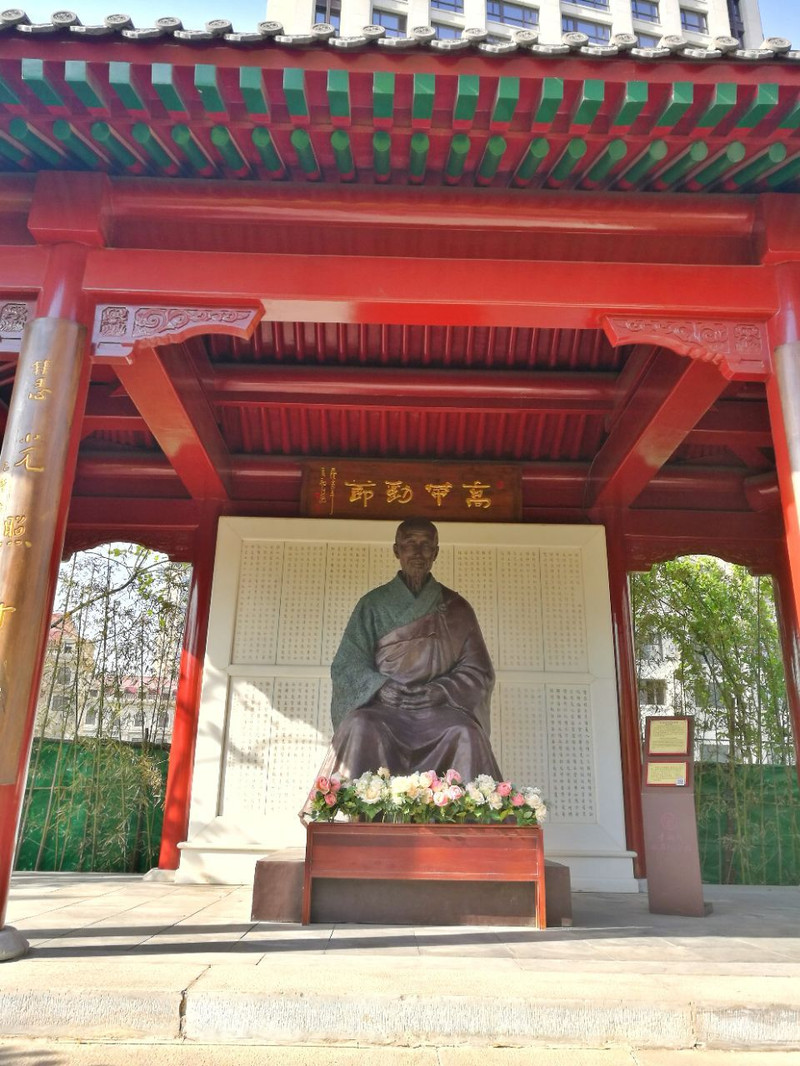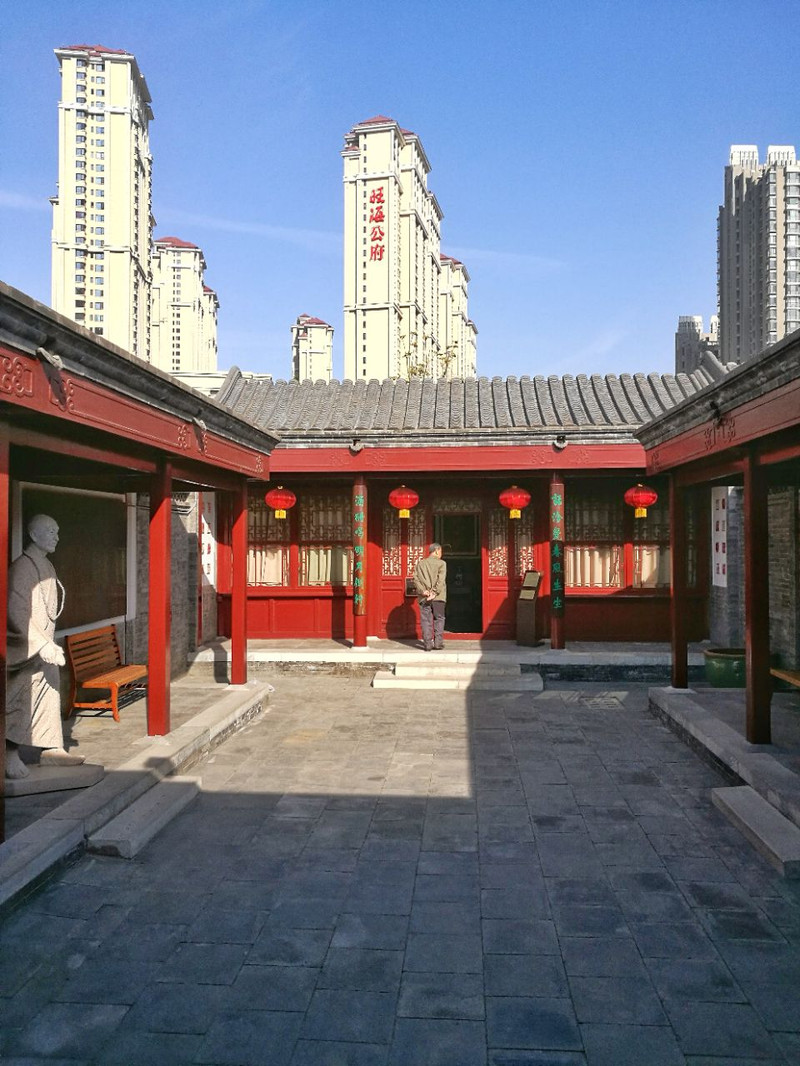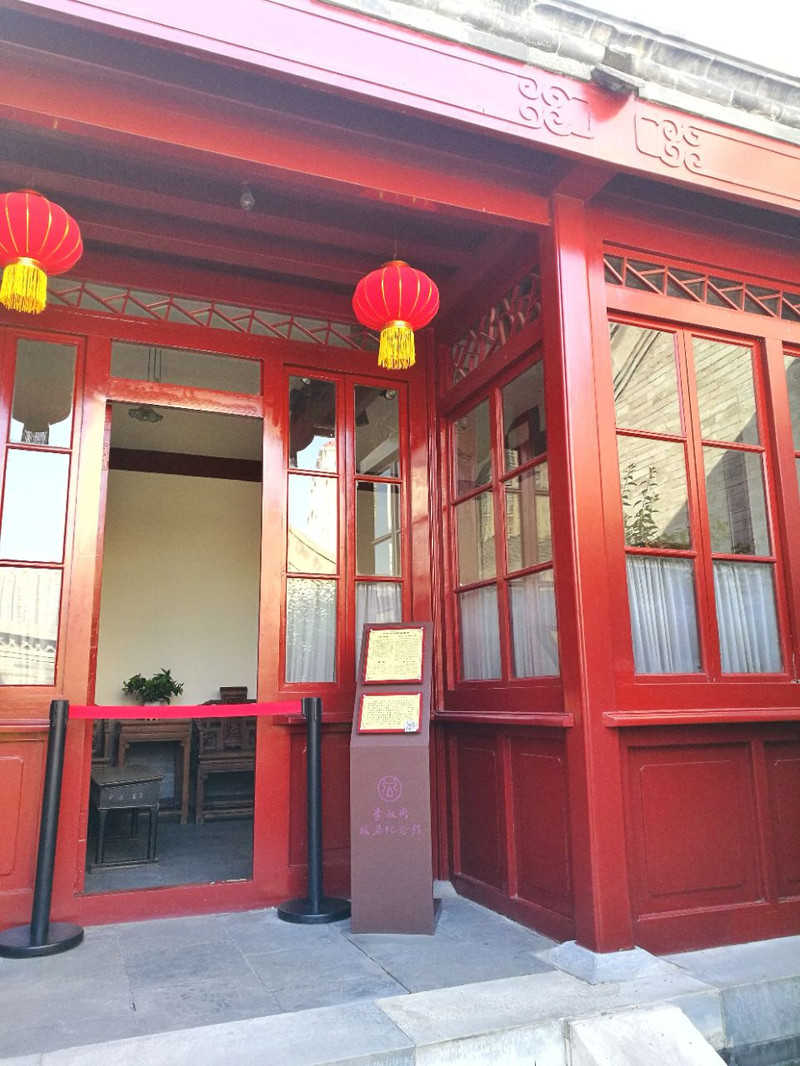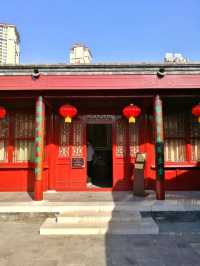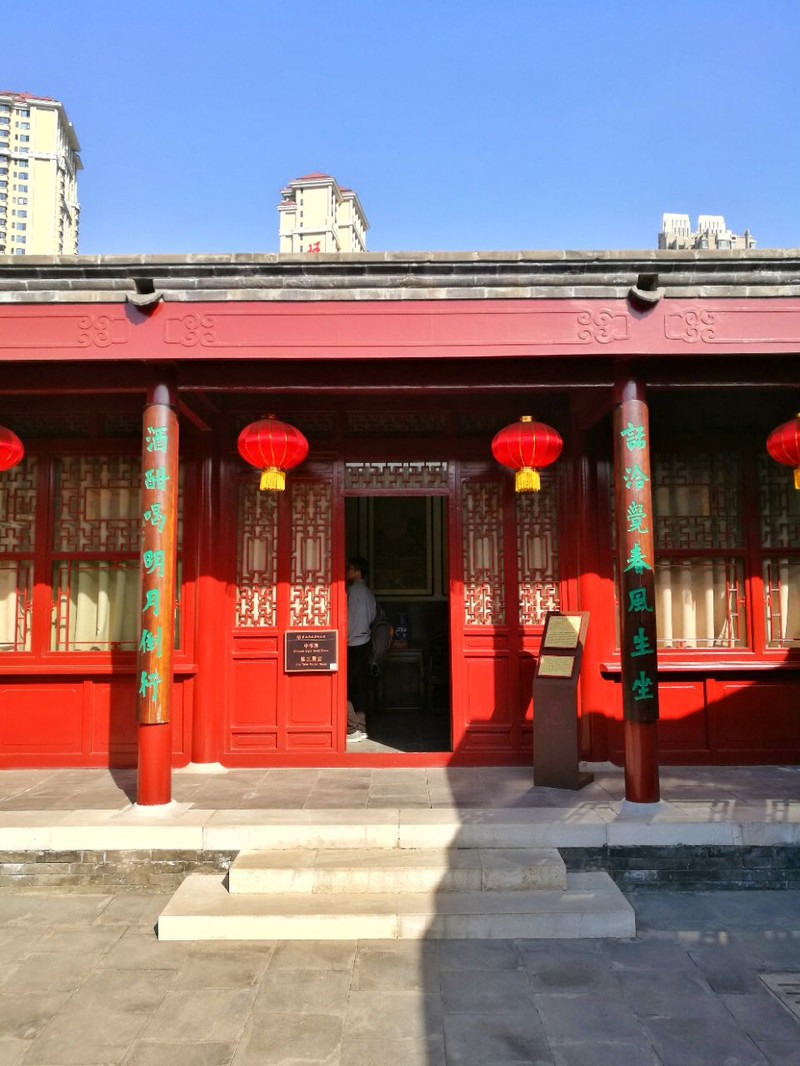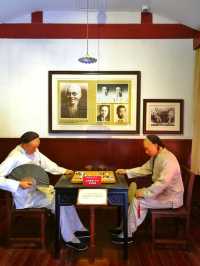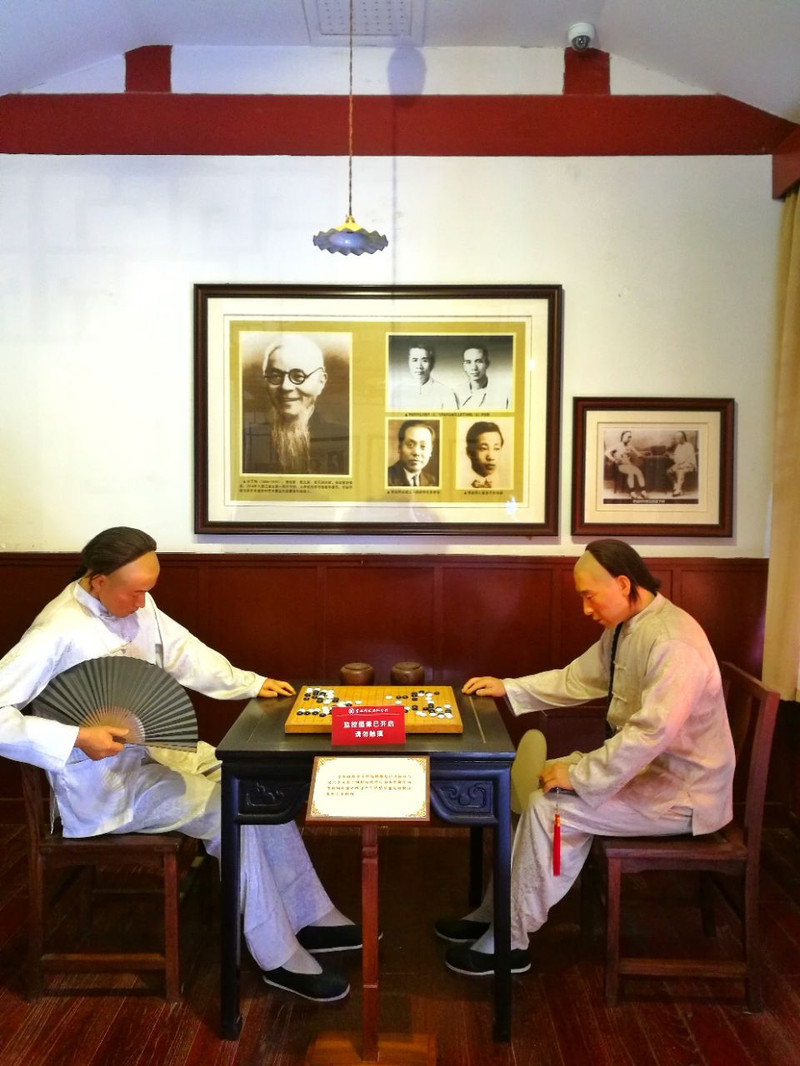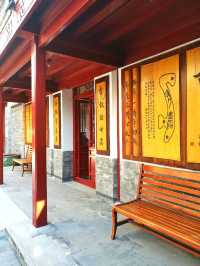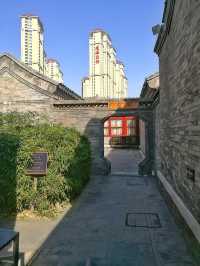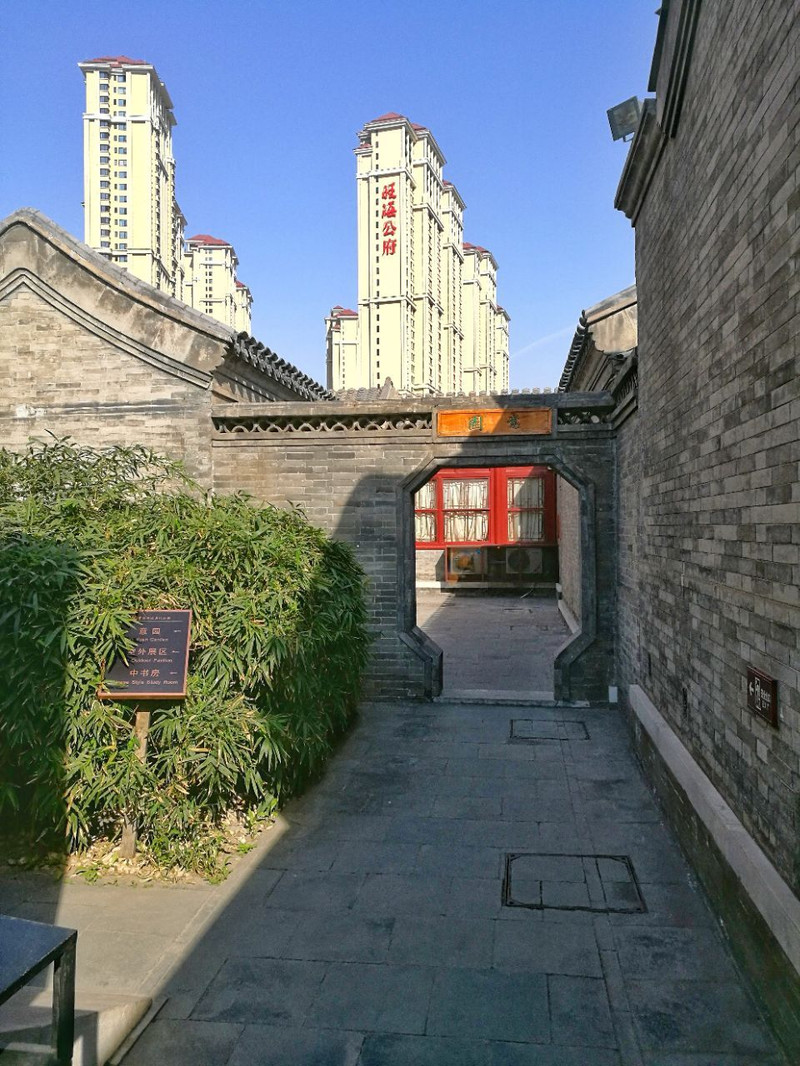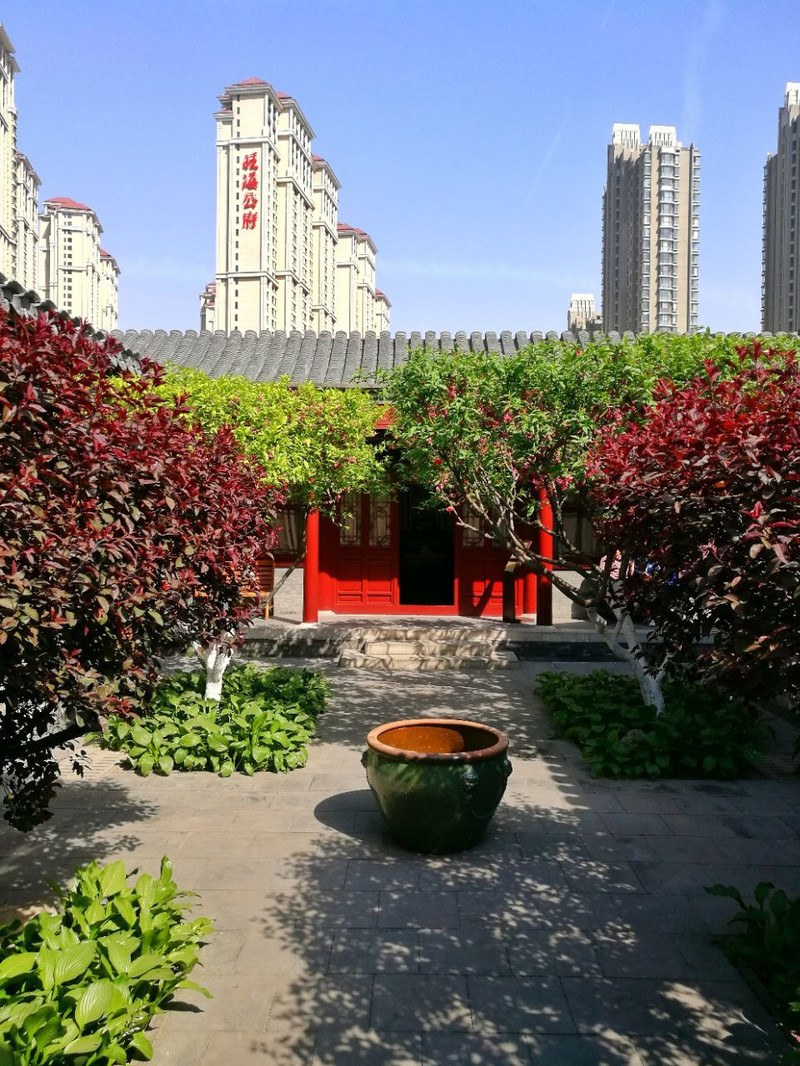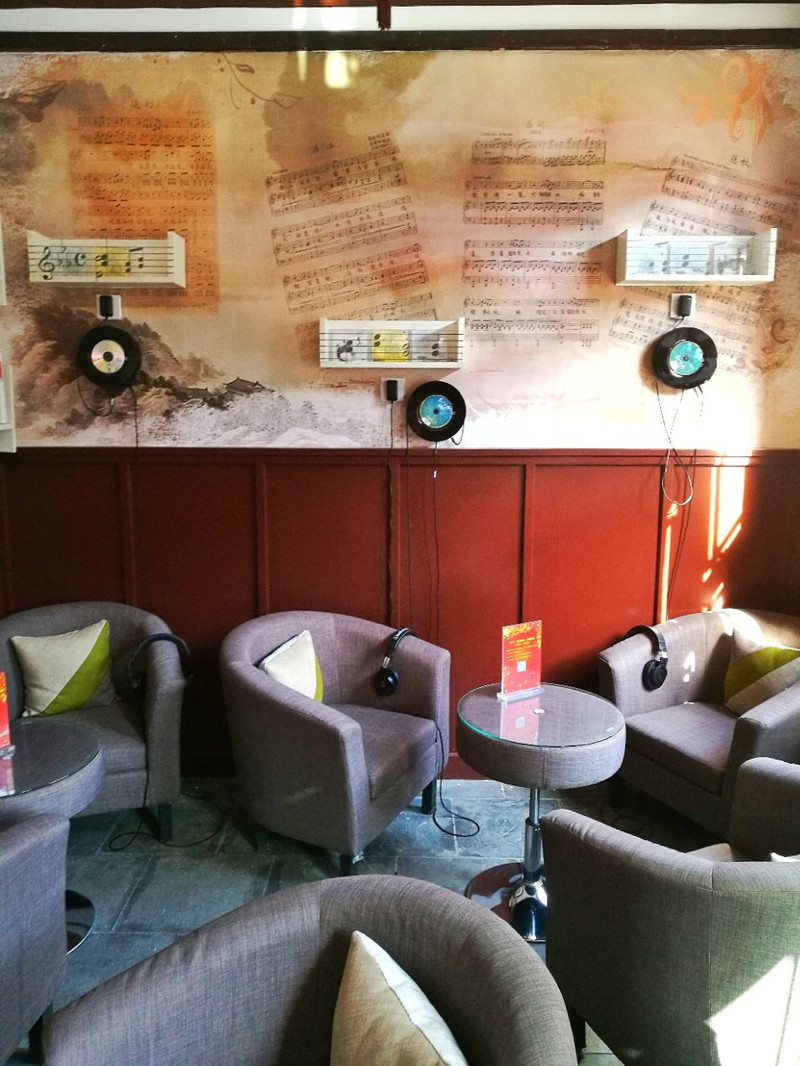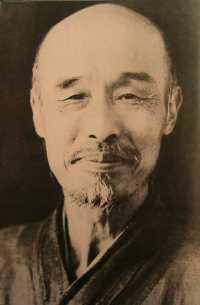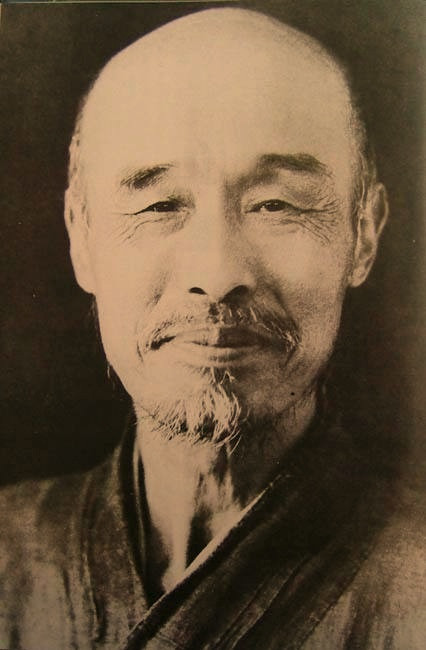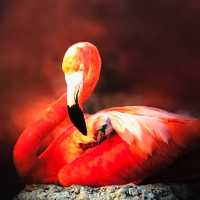In 1880, Li Shutong was born in a salt merchant's family in Tianjin, and his family was rich. Li Shutong was extremely intelligent from an early age. He read poetry and books, studied calligraphy, painting, music, poetry and fu. In 1901, he joined Nanyang Engineering School, studied under Cai Yuanpei, and went to Japan to study in 1905. During that time, he founded a drama troupe and became one of the founders of Chinese drama. During this period, he made great achievements in both art and music. In 1915, he joined Xileng Printing Agency. In 1916, Li Shutong went on a hunger strike for 17 days in Huruoquan, Hangzhou. He became a vegetarian. In 1918, he finally joined Dinghui Temple in Huruoquan, Hangzhou. He became a monk by shaving his family name, performing his name and pronouncing Hongyi. Then Master Hongyi began to study Buddhism. In the next few decades, from Hangzhou to Xiamen and then to Quanzhou, Master Hongyi became a master of teaching, calligraphy and music creation. In October 1942, Yuanjing was 62 years old in Quanzhou. Li Shutong was born in the Tibetan Hutong of Hebei District. Now he has been demolished. The Tianjin Municipal Government built a memorial hall for him near his former residence by the Haihe River. The gate is on the quiet coastal road. There is a small parking lot with free tickets. After entering a small garden, it was a two-way courtyard. Each room had a brief introduction of Li Shutong's life, photographs and his calligraphy and painting works. There was also a room in which his music audition room was arranged. Some rooms were beautifully and vividly according to the layout of his year. I went to the quiet music audition room alone, sat on the comfortable sofa, put on a master's CD, put on headphones, and the soothing music sounded slowly, like a warm current, straight into the ear, from the brain to the whole body, to limbs and bones. A sunset sprinkled into the window, shone on my face, closed my eyes, feeling that this is the Master's warm hands touching my face and forehead, a hot tear, involuntarily flowing through my cheek [Master's warning] self-repair, to clear the heart. In dealing with the world, caution is the first step. Discipline oneself, should bring autumn. In life, spring breeze must be brought. Mind skill, with light and honesty as the first. Appearance, to be the first elder. Speech, with simplicity and truthfulness as the first. If you don't respect yourself, humiliate yourself. He who does not fear himself will bring misfortune. Evil is no greater than self-indulgence. No misfortune is greater than the misfortune of the speaker; the gentleman who gives it loses his virtue, and the villain who gives it kills me.
Former Residence of Li Shutong Review
4.7 /5169 Reviews
Recommended Attractions at Popular Destinations
Bangkok attraction near me | Tokyo attraction near me | Manila attraction near me | Hong Kong attraction near me | Taipei attraction near me | Seoul attraction near me | Los Angeles attraction near me | New York attraction near me | Shanghai attraction near me | Kuala Lumpur attraction near me | Shenzhen attraction near me | Osaka attraction near me | Singapore attraction near me | London attraction near me | Guangzhou attraction near me | San Francisco attraction near me | Beijing attraction near me | Macau attraction near me | Bali attraction near me | Paris attraction near me | Ho Chi Minh City attraction near me | Orlando attraction near me | Jakarta attraction near me | Chicago attraction near me | Phuket attraction near me | Toronto attraction near me | Istanbul attraction near me | Dallas attraction near me | Cebu attraction near me | Seattle attraction near me
Popular Attractions
Tokyo DisneySea | Casa Batlló | Iskcon Gachibowli | Tokyo Tower | Huaqing Pool | Emperor Qinshihuang's Mausoleum Site Museum | Parc de la Ciutadella | Shaanxi History Museum | Bridge of Sighs | Casa Loma | The tree deck | Tianluokeng Tulou Cluster | Venetian Macao Resort | Vancouver Aquarium | Tianzifang | Our Lady of the Pillar Parish Church | Edwards Gardens | Horsethief Canyon | "The Song of Everlasting Sorrow" | Ba Na Hills | Playa del Carabeo | Palwan chandi ram | Giardino pubblico | Lorikeet Feedings | Seaview Trailhead | DataDian Borneo | Hundestrand | Hanuman Mandir | Badische Landesbibliothek | Blumarine
Payment Methods
Our Partners
Copyright © 2024 Trip.com Travel Singapore Pte. Ltd. All rights reserved
Site Operator: Trip.com Travel Singapore Pte. Ltd.
Site Operator: Trip.com Travel Singapore Pte. Ltd.
